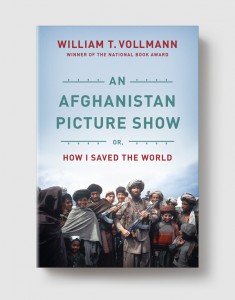
List price: $16.95
- Pages
- ISBN9781612191980
- Publication dateJuly, 2013
- Categories
- Booksellers
- Media
- Academics & Librarians
An Afghanistan Picture Show
or, How I Saved The World
William T. Vollmann
With a new introduction by the author
Never before available in paperback and all but invisible for twenty years, a personal account of the origins of America’s longest war.
In 1982, the young William T. Vollmann worked odd jobs, including as a secretary at an insurance company, until he’d saved up enough money to go to Afghanistan, where he wanted to join the Mujahideen to fight the Soviets. The resulting book wasn’t published until 1992, and Library Journalrated it: “The wrong book written at the wrong time . . . With the situation in Afghanistan rapidly heading toward resolution . . . libraries may safely skip this.”
Thirty years later—and with the United States still mired in the longest war of its history—it’s time for a reassessment of Vollmann’s heartfelt tale of idealism and its terrifying betrayals.
An alloy of documentary and autobiographical elements characteristic of Vollmann’s later nonfiction, An Afghanistan Picture Show is not a work of conventional reportage, but a self-lacerating picaresque, an account of a subtle and stubborn consciousness grappling with the limits of will and idealism imposed by violence and chaos.
“Fascinating to revisit after all these years.” —David Ulin, Los Angeles Times
“Vivid and complex . . . Vollmann conveys the frightening, almost otherworldly joy of the mujahideen as they fight against Soviet troops . . . A bold and original accomplishment . . . In his honest accounts of [the Afghans’] plight, and his morally and emotionally complicated reactions to it, Vollmann . . . has written a powerful, searching addition to the literature of personal witness.” —Los Angeles Times
